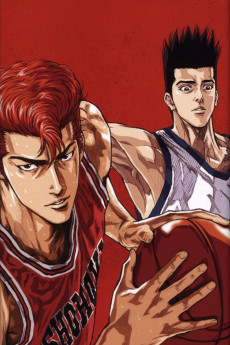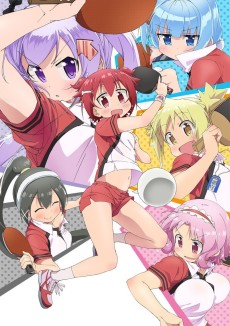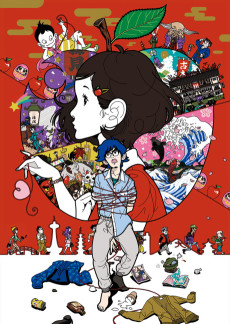PING PONG THE ANIMATION
STATUS
COMPLETE
EPISODES
11
RELEASE
June 20, 2014
LENGTH
23 min
DESCRIPTION
Tsukimoto Makoto (nicknamed Smile) is a quiet high-schooler who's been friends with the loud and energetic Hoshino Yukata (nicknamed Peko). They're both in the table tennis club and are very good at it, though Smile's personality prevents him from winning against Peko. The club teacher however notices Smile's talent and tries to make him gain some sportive tenacity.
(Source: Anime News Network)
CAST
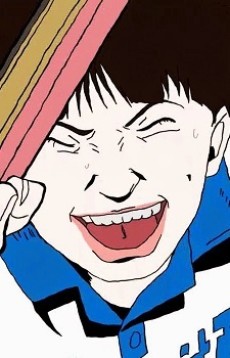
Yutaka Hoshino
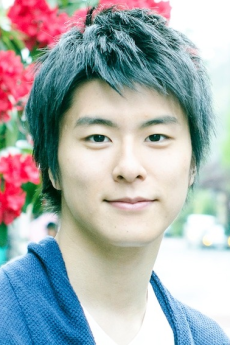
Fukujurou Katayama
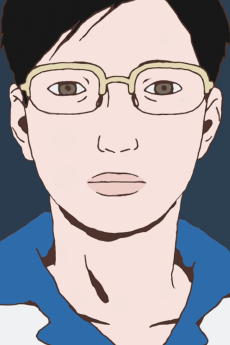
Makoto Tsukimoto
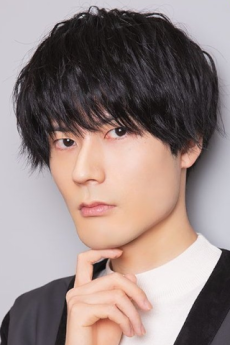
Kouki Uchiyama
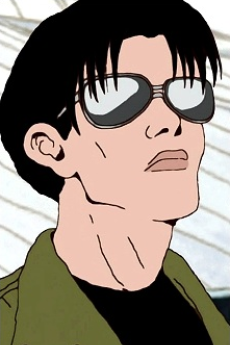
Wenge Kong
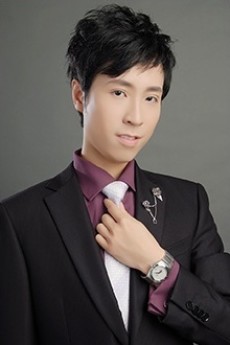
Yousei Bun
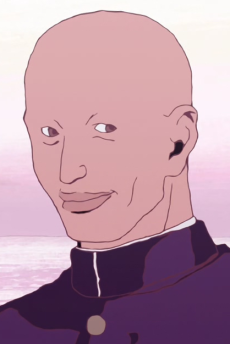
Ryuichi Kazama
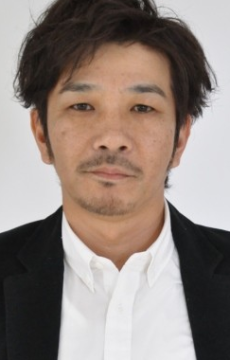
Shunsuke Sakuya
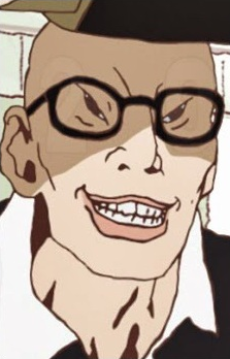
Manabu Sakuma

Subaru Kimura
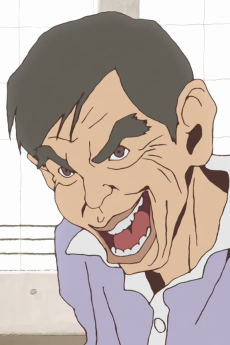
Jou Koizumi
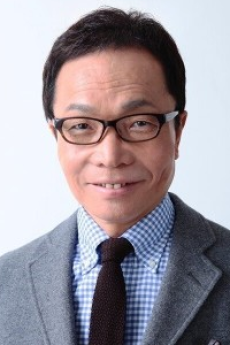
Yuusaku Yara
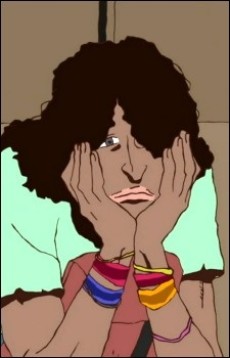
Egami
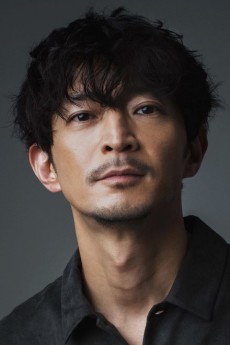
Kenjirou Tsuda
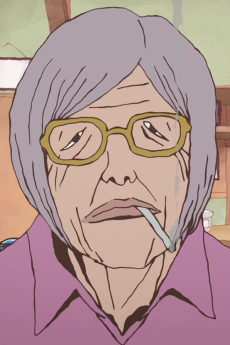
Obaba
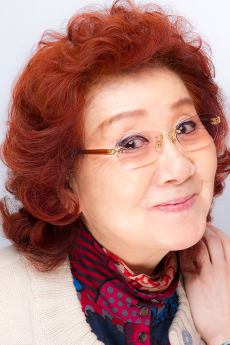
Masako Nozawa
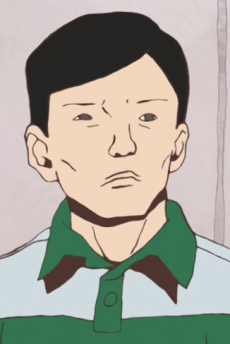
Kong no Coach
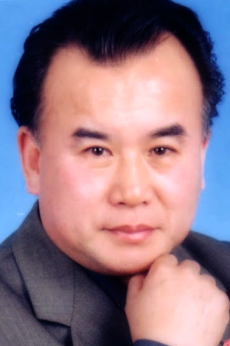
Bo Cheng
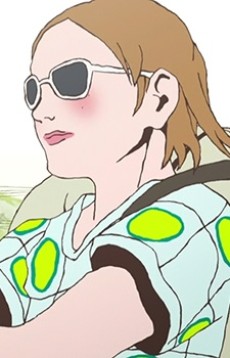
Yurie Kazama
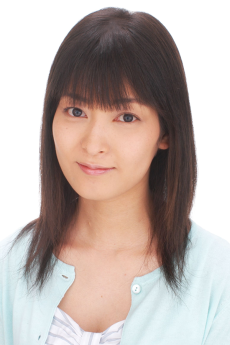
Ayako Kawasumi
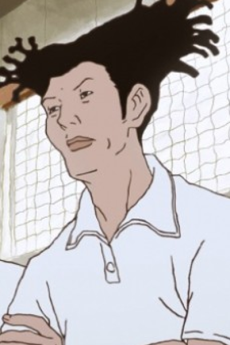
Ota

Takanori Hoshino
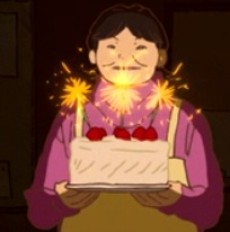
Kong no Haha

Ryu Ken
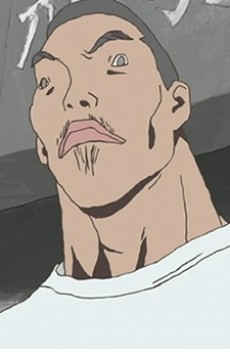
Michio Tamura

Takahiro Shimada
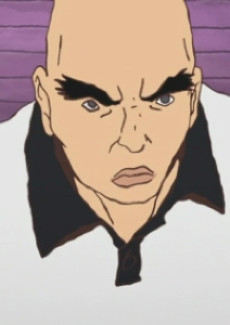
Masayuki Sanada
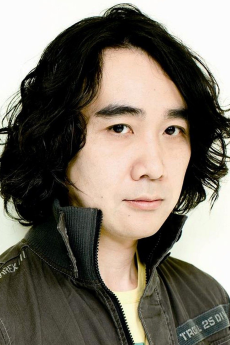
Kenji Hamada
EPISODES
Dubbed
RELATED TO PING PONG THE ANIMATION
REVIEWS

aabir
86/100Almost a masterpiece and my pick for anime of the year (2014). Guess that speaks volumes on where I stand on this.Continue on AniListThere are very, very few series that are almost unanimously considered to be great. Ping Pong the Animation is one of them. It is set around the game of Table Tennis and follows five people whose entire lives revolve around this one game. Sports anime usually follow a very black/white mortality scheme with some cocky guy doing bad things until the MC comes around and defeats him after weeks of practice. Ping Pong deviates from this formula so much that I find it hard to call it a sports anime. It is so much more than what that implies. There is a very gray morality scheme and I couldn't really say that one guy deserved to win over the other or vice versa. All characters have a reason that drives them forward - forward to victory, but in a cut-throat game such as ping pong, there can only be one winner, and the rest are discarded as trash.

Artwork and Animation (6/10)
One of the very first things you will probably notice about Ping Pong is its rather unorthodox artwork. It is still a matter of debate whether it was on purpose, or if it was just incompetence. While some may argue that it is one and the same, its not. Lazy and shit artwork are one thing, a unique artwork is quite another. Its kind of like the difference between, say SHAFT and TNK. One is out-of-place on purpose, the other is terrible while trying to look good. Ping Pong's main artwork is done by a certain Tatsunoko Productions. While they have a lot of anime under their belt, I have -embarrassingly enough- not seen even one of them. The only one I can think of is Gatchaman Crowds, which had an fairly average -if a bit heavily detailed- artwork. The same holds true for Ping Pong, except that Ping Pong's artwork is pretty irregular. It makes the entire series look uglier than it should have. I have no qualms with unique art, but I really don't like praising something based on uniqueness alone. The irregular and choppy artwork is a major annoyance early in the show, and some things are just downright disgusting (read: peco eating chewing gum). The irregularity also makes characters look all kinds of weird from different angles.On top of that, the artwork is very inconsistent, this is the case with most of the side characters.

That said, I won't call Ping Pong's artwork bad. I was actually quite tilted against it, but the last episode changed my mind. The sheer force of the game was stunning to be honest. The animation conveyed the energy of the game in almost a surreal manner and it then stuck me that bad artwork can't possibly achieve such an amazing experience - and even so, it went black and white. I hate to say it, but I have no idea why I liked the artwork at times. Its clearly terrible, but I just....liked it.
To summarize, the artwork in Ping Pong is terrible from my viewpoint, but a lot of people can handle it, and even enjoy it.
Besides, the plot and its immersion more than makes up for the bad artwork, with the artwork becomes steadily more comfortable as you progress further into Ping Pong. But that of course, holds true for almost any artwork.
Sound and Music (9/10)
The sound of shoes screeching on the floor, the sound of the ball hitting the table, the cry of cheer from the crowd and even the movement of a cycle are all done almost to perfection. Watching the game, it reminded me of back when I used to play, and I...you know, felt it. That love for the game, that passion. The biggest provider for that is -without a doubt- the sound. Its so lifelike that I don't really think I can praise it with mere words. Perhaps this is a little biased, but I'll call this perfection.
The voice acting is -once again- brilliant. But hold on, take a look at the VAs. Other than Tsukimoto, most of the others are pretty inexperienced. In fact, Peco and Wenge have this anime as their debuts. But, during the entire course, I figured the VAs were some high class dudes with a lot of anime under their belt. I was surprised to see that didn't hold true at all. Not often do you see new VAs give a performance as awesome as they did in Ping Pong. God-tier will probably be too low for this. I don't know if it was the content of their words or their voices, but I connected pretty well to the characters thanks to this. Listen to Wenge telling his story, or when he sings. You can literally feel the pain and the responsibility that rests on his shoulders - even though he acts so indifferent to his story. After all, someone who has lived through stuff doesn't get re-emotional over that, he has probably accepted the fact and moved on. Despite that, it felt like an old friend was talking about how his life has gone, and he had just accepted his conditions and was preparing to change them. That's one part that really hit home. Another thing about Wenge is that his VA is a native japanese, but any chinese guy would swear that the guy is chinese due to his control over the language. Of course, Peco also has stellar voice acting, especially when he is brimming with confidence.

The music is, once again, excellent. It just grips you with its power. Look at OP01, that is top quality stuff right there. While it goes a bit stale approaching the middle, it picks up again and just becomes god-tier.
The ED is comparatively low-beat, but it did seem a bit....off-track. In episodes that end with a cliffhanger or maybe after a power play, it just seems weird that a calming voice comes out after such a trilling end. Kinda reminded me of Clannad and its utterly depressing thing happens DANGO MOTHERFUCKING DANGO
Story and Characters (26/30) and (28/30)
The story for the most part is about Peco and Smile (ironic). Smile is better than Peco but let's him win because they are friends. Then some douchebag coach going MISSSTERR TSUKIMOTO turns up and wants to coach his talent so he can unleash it in the interhigh tournaments. Even so, Smile lacks any motivation to do so.
While the premise might sound boring, or perhaps rather uninspiring, its execution is nothing short of brilliant. It takes on a borderline tragedy face during the tournaments and the drama is rather unmatched. The story is extra serious and the plot progression is fair enough. The pacing is surprisingly very good despite being only 11 episodes. Most of the focus is on Smile and Peco's history and while that counts as great development at first, it starts getting boring fast. Even though sports is the major genre here, a one on one game is usually not shown, and even then its kept short, it was a bit disappointing, but to be perfectly honest, I think that was the best way to do it. The story spends an awful long time creating the characters and setting the pace. After that, a game is played. Despite it not showing individual points, the focus is on the two players, It shows as the completely outmatched player of the two realizes his doom, and notices how its all over for him, asking himself, questioning if Table Tennis is really what he should do with his life - with a wave of resignation hitting him. This development is what makes ping pong so ruthlessly excellent in its execution. Looking at it from a purely fact based view, its just one guy you never saw before losing and going "oh crap" but from the viewer's human view, its so much more than just that.

That said, all is not well with the story. Yurie seemed rather side lined and pointless and her inclusion somehow soured the story. Even then, Ping Pong just...lost its touch at ep8. It revealed a bit too much too fast and ended up giving a painfully obvious prediction away.
In ep8, We are told the story of how butterfly Joe was unable to defeat his old friend out of pity, and then we get to see that Peco had injured his knee before going into the interhigh. It was just too obvious from then on out. It was almost like someone spoiled the story for me. I already knew that Peco would trash Wenge and Kazama because that's the only way to recreate that match those many years back. That is precisely what happened. To be completely fair though, Ping Pong answered back by just closing my 'spoiler' with one line - "can you do it, Tsukimoto?" "Yes" which allowed for a great episode 11, but the damage was already done, two episodes leading up to the end were destroyed.
Thankfully, I didn't predict too much and was still allowed to get a great ending. Speaking of endings, I believe that support characters (outside of Kazama and Wenge) didn't quite get the ending they deserved. A lot of support characters don't get any development, but considering how its only 11 episodes, I believe this was just fine. Ping Pong's Lifelike characters and stunning realism is pretty much what drives it forward with a little push from its storyline. The coming of age and the bitter rivalries between characters is portrayed beautifully. For such a short anime, its almost surprising to get this.

Yet another thing that comes to mind is the script writing. Or to be more specific - dialogues. Throughout the series the interaction between characters was realistic and often left the viewer with some kind of an impression.
Clearly though, Ping Pong is not something to watch on the train. You have to really sit down and lose yourself in it to really appreciate it. Its plot is serious and dedicated, which in turn gives off a good watch.
Enjoyment (17/20)
Do I have to say it? I loved every second of Ping Pong. While of course, it does have its faults, I believe that Ping Pong does do an extremely good job in achieving what others fail at - giving an unforgettable experience. I really really wish that I could call it a masterpiece, but that little artwork section is really holding it back. Despite that though, I enjoyed my experience - something that hasn't happened in quite a while now. To be honest, I would recommend it to everyone, be they sports fans or just in for some romance. Who I won't recommend it to would be 14 year old kids who most of the anime industry service day and night. I just hope that the positive feedback that Ping Pong has received drives the industry in a better direction and perhaps even to more dedicated storytelling. Then -just like it did this season- I'll be able to say "Ping Pong was the bastion that saved anime"

Giga
93/100Good show. Good hair. Watch for tennis. Stay for Peko. But no really it's a good show.Continue on AniListI am a seasoned anime veteran. I have watched a lot of shows but none stands out quite like this one. It is almost perfect! I have never seen characters play sport as well as the characters in this show. They are just so into it, so passionate. Peko's bowl haircut is the highlight of the show. It is so perfect and yet so meaningful. I would say his hair alone would make this a masterpiece. I give this show (4/6)(π)(r)^3 out of 10 tennis balls.
Visuals: Almost rotoscoped. But it isn't. That is how you KNOW it is good. Aku no Hana should take pointers. I have never seen something so fluid and yet so jagged. The way they move is beautiful on the count, but they look ugly sometimes. Except for the character China. China always looks beautiful. This whole art style takes a while to get used to but it grows on you.
Audio: The soundtrack is amazing. It gets you hype and motivated. Go out for a run while listening to Hero Theme. It gets your blood pumping like you inserted a literal pump into your veins. Anytime I need to get motivated I liked to that song as well as the Persona soundtrack. The other songs are just as good. Starting in episode one you will hear how great the OST is. Once you hear China's theme you will know that the rest of the anime will have great audio. Translator's Note:It isn't the country's National Anthem
Story: Let me level with you. This show makes you really feel the struggle of being bad at things. The main theme is natural talent versus hard work. You really see this plot happen, mainly at the end. Other things happen to. Like working too hard and not focusing on loved ones. You will really start siding with characters once they get into the ring. They all have different purposes for playing air hockey, but we see these purposed in depth. A lot of it is sad. Also the robot motif is great. One of the character acts like a robot and he quite literally as it was animated that way in the final episode transforms into a human as the story progresses.
Remember kids, be passionate and do your best. Even if there are people naturally better than you. The true plot is about not letting robots take over our lives. Fight back!

LIQfilms
100/100A review of Pingu Pongu the animuContinue on AniListI remember a few years back, when I was discussing anime with someone in a year above mine at my school, that the discussion had turned to what we believed were the worst anime of all time. We discussed the usual that everybody brings up. Mars of Destruction, Boku no Pico as well as the then recently released second season of Tokyo Ghoul. As we kept discussing this topic, the other person, let's call him, "Light Novel Trash Lover" (as he kept telling me Infinite Stratos and SAO were the best anime ever made and he even came to school cosplaying Kirito a couple of times, complete with the dual swords and everything; how the hell he was let in was beyond me) then brought up Ping Pong: The Animation as being one of the worst anime ever. Struck with both surprise and curiosity I asked him his reasons why, for, at the time, I had only seen three episodes and had really liked what I had seen. Light Novel Trash Lover then told me that, "Ping Pong is the worst anime of all time because the animation and art style is terrible!". And this little story sums up why I believe Ping Pong The Animation is so overlooked within the anime community, which is a shame too, since many are missing out on perhaps one of the greatest sports anime of all time, and one of the best in this past decade of anime. Of course, disliking an anime's art style is not inherently bad, but dismissing the entire show as being bad, based off the art style seems pretty silly.
Regardless of such, Ping Pong The Animation has recently become one of my favourite anime ever! It's a show less concerned about the sport, and more so a character study of its cast, filled to the brim with interesting and clever allegorical writing and symbolism, from one of the most critically acclaimed and respected directors working today, Masaaki Yusa! So let's grab our ping pong bats, taste some of our blood (as it tastes like iron, y'know) and allow me to explain why I believe this show to be a masterpiece!
"The hero comes. The hero comes. The hero comes. Chant these words in your mind, and I'll surely come to you..."
Reciting these lines in his mind, one of our protaganists, nicknamed Smile, fights on in each and every one of his ping pong matches, along with his friend, nicknamed Peco. Both boys have grown up together, bonding ever more closely over their shared passion of ping pong and, after growing older and reaching high school, both begin to play in tournament matches. The show sees them both grow, not only in their ping pong abilities and skills but also more so as people as well, as they influence the players who go against them, who, in turn, also have their own mental hang ups.
Ping Pong's narrative, if anything, will not surprise you with any grand plot twists, and is, at its most fundamental level, a standard sports narrative. However, what makes the show shine so much is its well developed cast of characters, symbolism and amazing directing. Another thing that helps to make Ping Pong so much fun to watch from an entertainment perspective alone is how well paced the entire show actually is. The narrative is always pushing forward in some way, introducing new plot threads and mental dilemmas for its characters while also wrapping up several older ones at the same time, keeping the anime fresh and interesting. Another thing that makes this otherwise standard story so great is the how attached we become to both Peco and Smile as characters, generating intrigue from the audience, and many of the ping pong matches are exciting to watch since the narrative does a good job at creating narrative stakes and tension. The best example of this is the match between Weng and Kazama, where, if Weng loses this match, he will not be able to return to his home country of China, which makes the proceeding absolute beat down of his character in the match all the more emotionally gripping. The entire show is just very tightly written, with visual symbolism and motifs as well as well developed themes and ideas, used in many cases in order to convey more about the characters and what they're feeling without the use of dialogue to masterful effect, which I will be getting more into in a moment.
The crux of the show is certainly the relationship between Peco and Smile, and how each one of them develops throughout the course of the show. What's particularly interesting about their relationship is the juxtaposition of their personalities. Peco is rather upbeat, cocky and is highly motivated to become the best in ping pong while Smile is much more quiet and is referred to as being a robot with no emotions by his peers and the people who go against him in matches. In fact, his name, Smile, was given due to him rarely smiling (which we later learn was actually given to him by Peco after seeing how much Peco enjoyed playing ping pong as a kid).
Smile's character is all about learning how to enjoy the game of Ping Pong once again and break away from the robotic play style and mould he has been using for many years. The reason as to how Smile achieves this is through Peco's involvement in his life. Thus Peco is Smile's hero; the salvation he needs to enjoy the sport he holds so dearly once again, which results in some fantastic cathartic pay off at the end of the series. The motif of the hero, as well as the idea of flight is a consistent theme in the show and is used often to convey how character's are feeling too, with the depiction of a hero with wings being the representation of Peco. During the final match between Peco and Smile, as Smile begins to break free from his robotic play style, we see an image of a bird flying freely through the sky, representative of Smile's newly gained freedom.
Peco's energetic play style and massive love for ping pong ends up being the salvation of other players too, in particular, to Kazama, who had devoted his entire life to a strict training regime in order to win at ping poing and to further his career. However, his constant winning also leaves him isolated and secluded, as he frequently finds comfort in hiding in bathrooms before playing a game. In the penultimate episode of the show, we see visual imagery of the hero, in other words Peco, extend a hand to Kazama, before taking it back and smiling at him. Kazama then grows wings himself, and flies after the hero, looking down at the bathroom he used to hide himself in signalling that his character has indeed grown, and he is now able to enjoy ping pong once again, reflected in his changed attitude in the game he is playing.
More evidence that Peco is indeed Smile's hero comes from the line "Iron tastes like blood" which I referenced a little earlier in this review. The idea is that iron and blood are two juxtaposing elements, both representative of the contrast in personalities between the two characters. Blood is something that is alive, something that is moving, representing life, thereby linking into the idea that Peco is a hero and plays ping pong because he loves it, while the iron, which is associated as being cold and metallic is representative of Smile's character and play style. The idea that Peco tells Smile that "Iron tastes like blood" could be seen that Peco is trying to make Smile see that he is more human than Smile, and everyone else, believes. Another piece of symbolism used to contrast their characters are the use of the star and the moon, both typically found on each respective person's item of clothing or on their ping pong bats. The star is used to represent Peco, always full of life and shining brilliantly, illuminating everyone around him, fitting into the hero motif, while the moon is used to represent Smile, an object that has two sides to it: the dark side and the light side, representing the change that is going to take place in his character.
Some clever visual imagery is used in regards to Peco's character when he throws his bat into a river, which has the star symbol on it, signifying that Peco's light, and ambition is now no more. And there are plenty of these visual motifs in this show, all of which are used to showcase or add onto characterisation, making for some of the most interesting characters I've seen before in any show, most of which are rather relatable which drives the emotional weight of the characters even more. Each theme and motif in ping pong is integrated into the narrative in order for us to learn more about the characters. Take for example, the motif of the butterfly in regards to Smile's coach, Koizumi, or the theme hard work being crushed under natural talent in the case of Sakuma in his match against Smile.
Ping Pong also has one of my all time favourite soundtracks with each track fitting the theme and personality of a character perfectly. The opening is damn great and never fails to get me pumped up while, at the same time, sprinkling in some lyrics relating to the motif of flying in the show. Peco's theme is fast paced, frantic and fun, mirroring his character and the motif of a hero, and is used to fantastic effect during his match with Kazama. In contrast, Kazama's theme is foreboding and powerful, representing Kazama's strength, which is used amazingly during his match with Weng, that I briefly touched upon before.
I'd also like to use this match as an example of how great and imaginative the animation can be at times too. As previously mentioned, this match has a lot of narrative stakes since it is the final chance for Weng to get back into China after being kicked off the Chinese team, so as an audience, we sympathise more so with him, and want him to succeed. However, what follows, is an utterly hopeless beat down, and the entire match feels helpless. Just as much as Weng is feeling desperate, so do we an audience member, and the anime conveys this feeling of helplessness with fantastic visuals of Kazama towering over Weng, signifying their difference in skills and talent, as the ping pong table itself stretches out, emphasising this idea. Not only that, but every time Kazama hits the ball, a streak of purple lighting is used to convey the power and lighting fast reflexes Kazama retains. In addition, we also see him depicted as being a giant, again, referencing his raw strength, but also the colour used is important as well: purple. In Ping Pong, the colour purple is used to represent those respected in the world of ping pong, as both teachers of Peco and Smile frequently wear shirts with some shade of purple and the highly influential academy Kazama attends is also largely purple.
Taking this idea of purple, and applying it to this situation, makes for an interesting idea when we see Kazama transform into a giant purple dragon. Dragons are typically associated with Chinese culture, the place where Weng is trying to get back to, and having Kazama transform into a dragon is symbolic of his team who turned their back on them and the idea that he will never reach them ever again. The use of the purple signifies that they're respected in the world of ping pong, and the lack of any purple on Weng represents the idea that he will never get there again.
The entire show is loaded with this much visual imagery and creative metaphors and is so insanely dense that it would be impossible to talk about it all, which is what makes the show so insanely well crafted and interesting to watch for anyone who loves creative animation. The animation as a whole is incredibly fluid and, at times, rather bouncy and energetic. I also love the art style too, albeit, if it can sometimes look jarring or wonky at times; it was never enough to pull me out of the overall experience however.
When it comes down to it, Ping Pong is a hard series to summarise and talk about because of how dense and how well constructed everything is. I could go on forever about what I personally think the show is trying to say and what each element represents, but I believe part of the fun of this show is trying to piece and make sense of everything for yourself, and if there is anything of what I said, you think is misinterpreted or just flat out wrong, please feel free to tell me. After all, all the analysis is just from my mind. Ping Pong The Animation is a marvel. A great example of what can be accomplished in animation and a true testament that a simple idea can become a wonderful show. It's characters are very well developed and the allegorical meaning behind what each represents are interesting, the music is fantastic, and overall, this is one of the best experiences I've had with a show ever. With that all said and done, thank you for taking the time to read my review, and I'll leave you with my favourite quote from the show:
"We're alive, and that's why we're happy..."
SIMILAR ANIMES YOU MAY LIKE
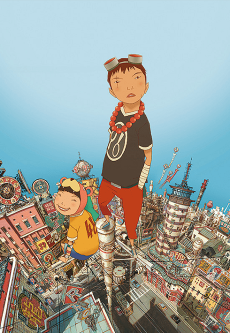 MOVIE ActionTekkon Kinkreet
MOVIE ActionTekkon Kinkreet ANIME ComedyYojouhan Shinwa Taikei
ANIME ComedyYojouhan Shinwa Taikei ANIME Drama3-gatsu no Lion
ANIME Drama3-gatsu no Lion ANIME DramaHoshiai no Sora
ANIME DramaHoshiai no Sora ANIME DramaChihayafuru
ANIME DramaChihayafuru ANIME AdventureEizouken ni wa Te wo Dasu na!
ANIME AdventureEizouken ni wa Te wo Dasu na!
SCORE
- (4.25/5)
TRAILER
MORE INFO
Ended inJune 20, 2014
Main Studio Tatsunoko Production
Trending Level 1
Favorited by 8,340 Users
Hashtag #ピンポン


